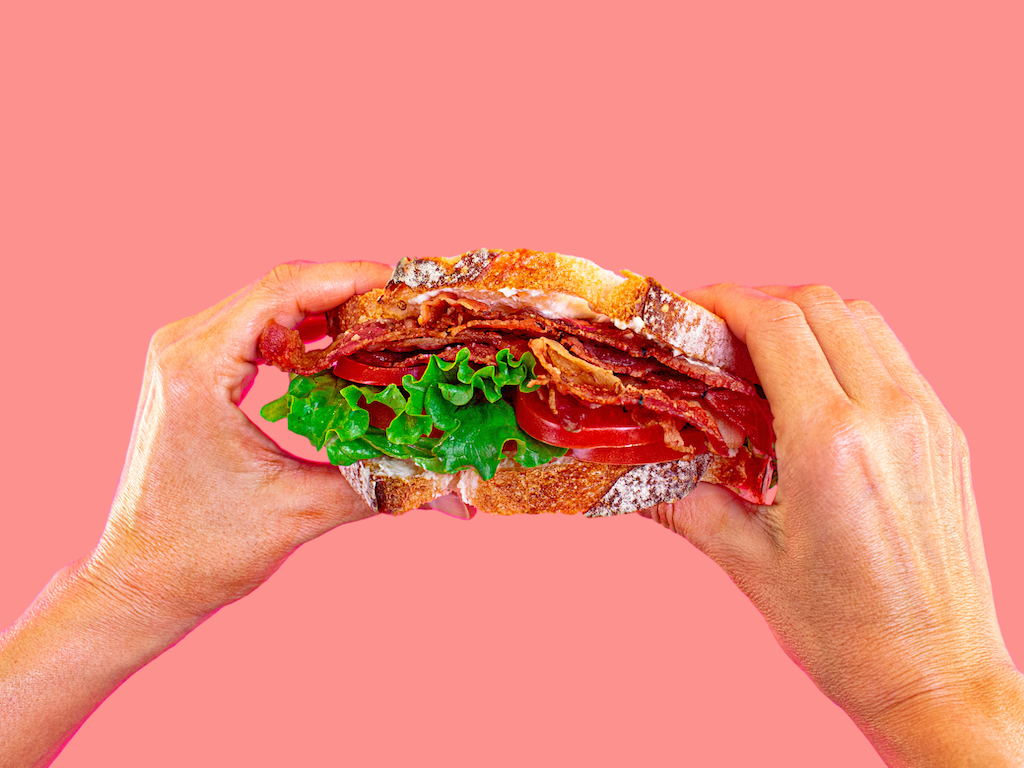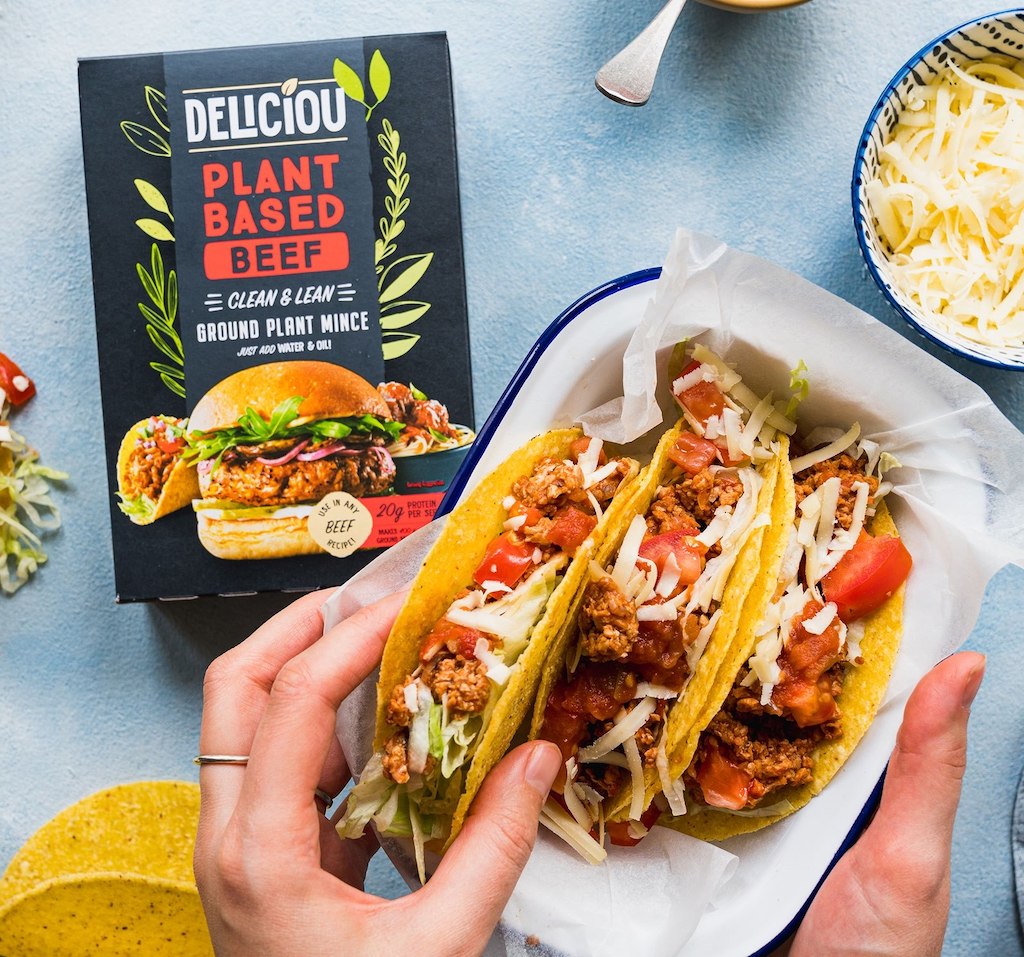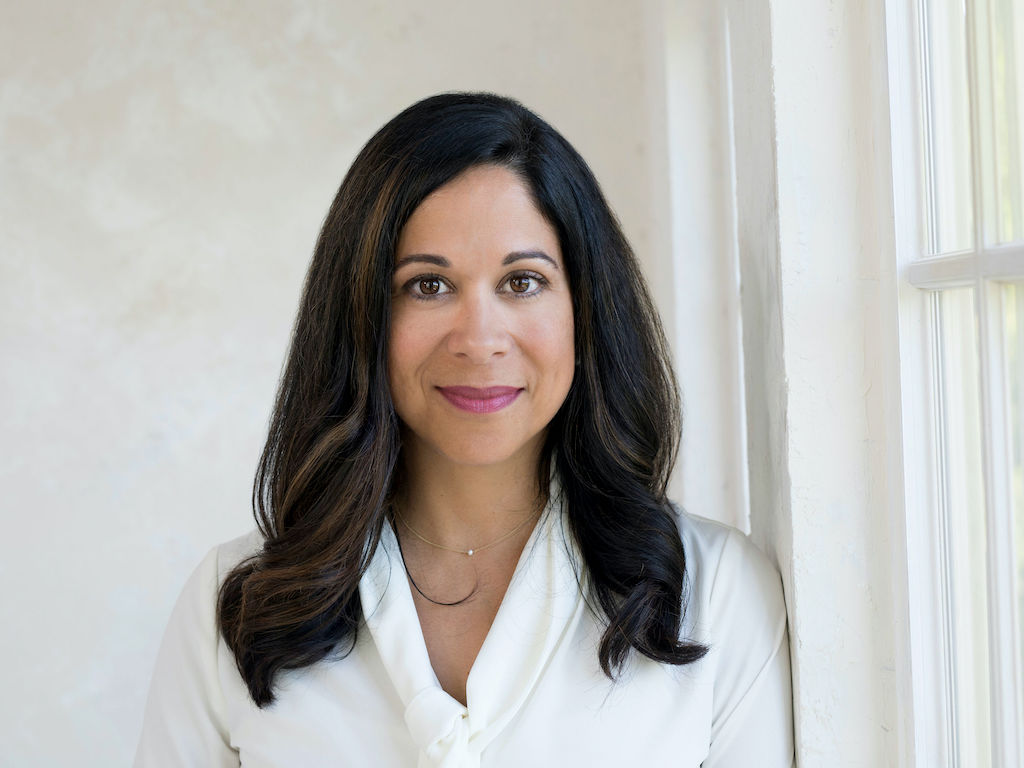12 Mins Read
Lisa Feria is CEO and General Partner at Stray Dog Capital, an impact venture capital firm investing in startups innovating healthier, sustainable and ethical solutions across the food and protein supply chain. After working at big firms like P&G and General Mills, Feria took her experience and expertise to Stray Dog Capital, where she has led investments into some of the food tech world’s most notable pioneers from Beyond Meat to Miyoko’s Creamery. No one can claim to have a crystal ball, but many people in the world of alternative protein recognise Feria as one of the industry’s early seers. In this exclusive interview, she opens up about her unique career journey, why being one of the top 5 female Latina investors makes her sad, the kind of founders Stray Dog is looking for, why she wants her life to “be about something bigger” and why she is so bullish on (alt) bacon.
GQ: Tell us a bit about your background and how you ended up leading Stray Dog Capital, now one of the most active VCs in the alternative protein space.
LF: My path into venture capital was most certainly atypical versus what you typically see. I was born and raised in Puerto Rico, my father is from Cuba, and as a daughter of immigrants I came over to the United States to go to school for chemical engineering. Immediately after school, I got into food – food manufacturing operations, how you make food and the whole supply chain system engineering system – and I really enjoyed that. But I wanted to be on the other side, I wanted to learn more about how to manage a brand, a company and how to balance all the different vectors that make a successful entity, including financials and research and development. So then I got my MBA, and moved over to P&G, which you know, they call it the teaching company, because they do a wonderful job at teaching you how to maintain and grow incredible brands.
I had the realisation I needed to change my trajectory. I wanted my life to be about something bigger and to drive something more meaningful and solve the largest problem in humanity, which is the fact that the food system is unsustainable.
At some point, I suppose, I had what you call an “aha” moment – very much like the red pill, blue pill moment in The Matrix, when I saw a video from PETA called Meet Your Meat. I had always considered myself very aware of sustainability, environmental and animal issues, and I had a big love for animals. Then I saw that, and I thought, well, that this can’t be true. This must be the one video that PETA found, you know, that showed this one terrible place, right? But information is the best thing about the internet – if you want to know, you can know and start opening the doors for yourself. And so I started opening the doors, and once I did, I had to open all the doors in the building. I had to understand how food was made, and what sacrifices were the different stakeholders making – from animals, to workers, to communities. I realised I didn’t want somebody to inflict pain on animals on my behalf, because that wouldn’t be something that I would do. That’s when I had the realisation I needed to change my trajectory. I wanted my life to be about something bigger and to drive something more meaningful and solve the largest problem in humanity, which is the fact that the food system is unsustainable.
I really wanted to be part of the solution, not to leave this world on fire to my kids, or to be the last generation before everything just completely goes downhill in terms of feeding people, the treatment of animals, and the pollution associated with the current system. Then through a headhunter, I spoke with the founders of Stray Dog Capital, a couple from Kansas City, who are philanthropist entrepreneurs with the same mission and vision that I had, and they wanted me to come join them and put together the investment and venture capital arm. We started making our first big investments in 2015 into some of the most promising few companies that were out there at the time – Beyond Meat, Miyoko’s, Kite Hill. It was a meeting of the minds and the heart, and ever since then, we’ve been raising capital and we have continued to grow and hopefully expand our mission.
GQ: How exciting has it been to see the explosive growth of the food tech industry over the past few years, especially in just the last 12 months?
LF: It has been astounding, the level of growth and the level of innovation. When we first started investing, there were very few investors interested in food, because food was considered a very unexciting place to put your money. People wanted to fund the next Facebook, not the next General Mills. What we were able to prove is that food is an incredibly exciting dynamic space. The reason that is – thanks to millennials and Gen Zs and the younger generation who are demanding a better food system – is because they’re making and willing to make the trips to the second grocery store to pick up these products to pay a little bit more for them. They’re willing to make some sacrifices with the long-term goal of building a more robust food system in mind. In the past five or six years that we’ve been very heavily investing, that dynamic has changed dramatically. Beyond Meat is a big part of that, but it wasn’t just Beyond Meat.
What we were able to prove is that food is an incredibly exciting dynamic space.
It was the demand was there from a consumer standpoint, and the innovation was there too. It used to be that the highest innovation in plant-based was seasoned tofu, and now, the level of innovation and ingenuity is great. Instead of these incredible entrepreneurs going to technology or health or perhaps other industries that they can be in, many of them are choosing food. When you have amazing, incredible, talented people working towards a really big problem, you get really interesting, intriguing solutions. There’s been more and more of those highly talented entrepreneurs entering the space and that has resulted in a lot of great, wonderful companies.
GQ: Where do you see the industry going? Which sectors do you see the most innovation happening in 2021 and what’s been catching your eye?
LF: Out of all things, I am the most excited about bacon. The bacon [alternatives] up until last year were just uninspiring – I would never feed that to my non-vegan family members, it would just never make the cut. It was something that maybe the vegan and vegetarian people had once in a while because they wanted the texture, but it wasn’t scrumptious like “I need this right now”. But now, we just reinvested in this company, Atlast, whose mycelium bacon is extraordinary. We now have all kinds of different products and textural elements, not to mention from a health and sustainability standpoint, these products are significantly better than animal bacon. You know, Americans love to put bacon on everything – ice cream, drinks, you name it. So to offer a product like this widely, I’m really excited to see what the markets are going to do with that.

We’re also really intrigued and interested in full muscle products. Right now, companies are doing a great job with burgers but there’s a plethora of other animal-based products out there that we need to deliver great transformation into the right plant-based products. Now, we are seeing so much innovation in terms of providing the textural and structural components of a steak, for example, and that’s super interesting to us.
GQ: Can you share some of the recent investments you’ve made?
LF: Yes, so apart from investing in Atlast bacon and full muscle products, we continue to be very bullish on cellular agriculture. We have just reinvested into SuperMeat and products that are going to be literally exactly the same as the animal based counterpart, but without any of the negative aspects of it. We continue to be excited about seafood too.
Then finally, I think convenience is going to continue to play in a big way. We just invested in this company Australian company called Deliciou, they have shelf-stable chicken, beef and pork products. If you’re travelling or if you’re like us and need to put a dinner on the table in 10 minutes, because the kids are complaining and you need to get it done, then this is your product. It’s just the level of engineering and innovation is amazing, and not only that, but the reach – you can send this anywhere compared to a frozen or refrigerated product.
GQ: What do you look for in a deal?
LF: I look for a problem that needs solving, and a solution for the really big, hairy problems. We’re not intrigued by things that are going to replace a very small product with a very small market. We’re really interested in the trillion dollar market. So we look for products that are really widely consumed and used, this is what we go for. And you have to have some sort of unique solution to it. I’m looking for something that’s not just like “hey, we’re just like meat” – it needs to be better, and it should be better. Better not just in terms of a sensorial, textural aspect, but also better from a health standpoint. We are looking for products that are unique and differentiated and definitely hard to replicate.
We’re not intrigued by things that are going to replace a very small product with a very small market. We’re really interested in the trillion dollar market.
We are looking for teams that are thinking big too. I don’t want a team that found a great product, but doesn’t really think about how to make this as big as humanly possible, or how to make this company a 10 billion dollar company. I want entrepreneurs and I want teams to really think big, and really aim to make a big impact. It’s great if you have a fantastic product in your local community and you’re already driving people away from these damaging products. That’s great. But I need that to be everywhere. I want that to be worldwide, I want you to have ambitions to get into different regions and geographies to continue to grow the company. I want people with these audacious goals because we want to be able to help them grow. Our job is to get into the boat with you, you show us where you want to go. We run alongside you as partners, to act as your mentor and tailwind, but we want to know that where we’re heading is a big opportunity.

GQ: We recently celebrated International Women’s Day, and one topic that’s been getting more focus is the lack of women’s representation in the investment world. Do you think diversity tides are turning in investment and more broadly speaking in food tech?
LF: There’s this quote about sunlight being the best disinfectant. It’s absolutely the truth. I think things that aren’t focused on can’t be changed. If there’s anything that 2020 has brought to life and highlighted is the fact that we really do need to change a lot of different things in many different directions from a social justice standpoint, from a racial parity and equity standpoint. The investment and venture capital community is grossly underrepresented by women, by people of colour. For me, as a Latino woman, I was in an event a few years back and they said that there were only five Latinas leading funds over US$50 million at that point. I was one of five in the whole of the United States. That’s not something I am proud of. That’s something that makes me sad. I can’t even imagine what the numbers are for African American women. While I see an increased level of focus and scrutiny, I’m still waiting to see the results. It’s great if everybody’s saying it’s a terrible problem. But you have to fund us when we are fundraising, you have to help us find great deals. That’s how you help, not to say it’s a problem, someone has to fix it, and then stand back.
Within Stray Dog Capital, we pride ourselves on having very strong diversity, equity, and inclusion (DEI) initiatives. We consistently have conversations about social justice and we’re constantly trying to be better and to be part of the world that we’re trying to build. It’s about improving ourselves as a community and people. We want to be part of the solution, we want to be part of the group that’s doing things differently – walking the talk, not just talking the talk. We’re sending demographic surveys to anybody we speak with, on the entrepreneurial side, to really make sure that our own funnel is big enough that we’ve captured people from all colour and women. We have put together some really great focus areas, because we deeply believe in what we’re building – in this better, healthier, ethical food system, and that includes stakeholders showing up at all levels, both the venture side and the entrepreneurial side.
If there’s anything that 2020 has brought to life and highlighted is the fact that we really do need to change a lot of different things in many different directions from a social justice standpoint, from a racial parity and equity standpoint.
GQ: As a woman of colour, do you have any pieces of advice for young women out there who want to get into the investment field?
LF: You have to do a few things. The first thing is, not to be afraid of taking really challenging opportunities and jobs. This is obviously not necessarily the only way to do it, but the way I have set up my career is that I go for the opportunities, and it doesn’t matter where they are. I’ve been incredibly lucky to have a very supportive husband and kids that can move with me. I really have gone after these really big opportunities, because I believe that’s how you really jump.
Another thing is, mentorship is so important. Nobody in this world makes it without somebody else giving them a hand. Nobody. I would not be in this role, if Stray Dog Capital co-founders Chuck Laue and Jennifer Laue didn’t give me the opportunity. There are allies and people who really care about lifting others up, and we need to be interconnected to them as much as possible. I also think that amplifying others tends to have a ricochet effect, so mentoring others coming behind and continuing to make sure that we’re not the only ones going through the door, but also opening the door for others.
Always approach with a posture of being an eternal student, reaching out and grabbing as much help as we can, educating ourselves and also simply be a little bit fearless.
One more thing is, there’s this statistic that women only apply to jobs they are 100% qualified for, while men apply for jobs when they have around 60% of the qualifications. That really struck me, because what opportunities are we all discounting ourselves from, that we could learn how to do and grow? So we should always approach with a posture of being an eternal student, reaching out and grabbing as much help as we can, educating ourselves and also simply be a little bit fearless.
GQ: Do you have any other alternative protein predictions for this year?
LF: I think I’ve listed them all – bacon, seafood, full muscle products. This is what we’re going to see more of this year. Cell-based categories will also continue to make strides and move forward very quickly.
GQ: Finally, team rice or team noodles?
LF: Team rice! I’m Latina!
Lead image courtesy of Lisa Feria.




